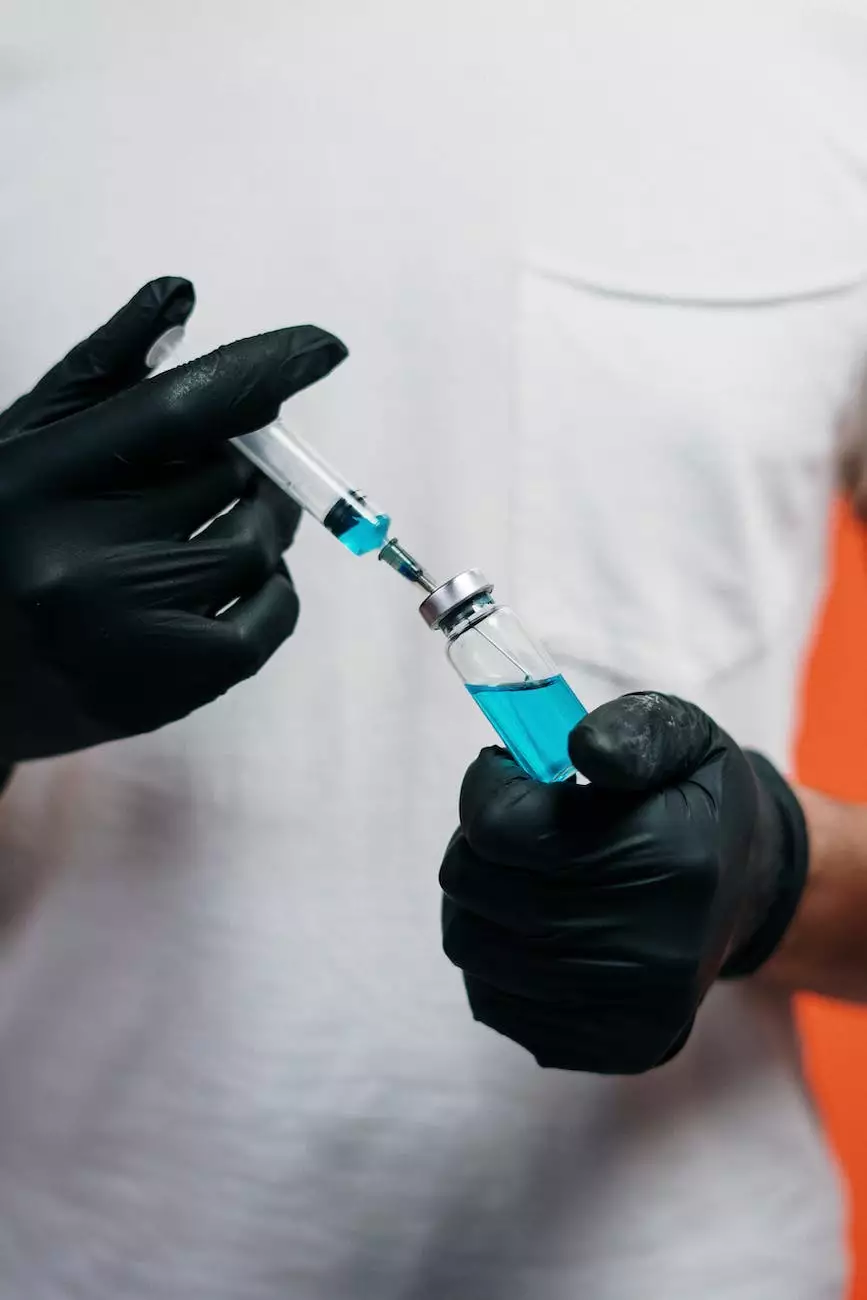Radiofrequency Catheter Ablation: Treating Atrial Fibrillation (AFib) with Precision
Orthopedics and Spine
Welcome to Richard Martinez, MD - your trusted source for comprehensive health information. Here, we provide a detailed guide to radiofrequency catheter ablation, a cutting-edge procedure used to treat atrial fibrillation (AFib), a common heart rhythm disorder.
Understanding Atrial Fibrillation (AFib)
Atrial fibrillation, also known as AFib, is a condition where the heart beats irregularly or abnormally. This irregular heartbeat can cause a range of symptoms, including palpitations, shortness of breath, fatigue, and dizziness. If left untreated, AFib can lead to more serious health complications, such as stroke and heart failure.
At Richard Martinez, MD, we prioritize your health and well-being. That's why we offer radiofrequency catheter ablation as an effective treatment option for AFib.
What is Radiofrequency Catheter Ablation?
Radiofrequency catheter ablation is a minimally invasive procedure that is used to restore the normal rhythm of the heart in patients with atrial fibrillation. During the procedure, a special catheter is inserted into a blood vessel and guided to the heart. The catheter delivers a precise amount of heat energy, known as radiofrequency energy, to the areas of the heart's tissue causing the abnormal heart rhythm.
By targeting and destroying the abnormal tissue, radiofrequency catheter ablation allows the heart to regain its normal rhythm, providing long-term relief from AFib symptoms. This procedure is performed by our highly skilled and experienced cardiac electrophysiologists, ensuring the highest level of care.
The Benefits of Radiofrequency Catheter Ablation
There are numerous benefits associated with radiofrequency catheter ablation for atrial fibrillation:
- Effective AFib Treatment: Radiofrequency catheter ablation has shown high success rates in restoring normal heart rhythm in individuals with AFib.
- Improved Quality of Life: By eliminating or reducing AFib symptoms, this procedure can greatly enhance your overall well-being and quality of life.
- Reduced Dependency on Medication: Successful ablation can often minimize or eliminate the need for long-term use of medication to control AFib.
- Lower Risk of Stroke and Heart Failure: Restoring normal heart rhythm through ablation reduces the risk of associated complications, such as stroke and heart failure.
- Minimal Downtime: Radiofrequency catheter ablation is a minimally invasive procedure, resulting in a shorter recovery time compared to other surgical options.
The Radiofrequency Catheter Ablation Process
Prior to undergoing radiofrequency catheter ablation, you will have a comprehensive evaluation by our experienced cardiac electrophysiologists at North State Medical Group. This evaluation is crucial in determining your eligibility for the procedure and creating an individualized treatment plan tailored to your specific needs.
During the procedure:
- A local anesthetic will be administered to ensure your comfort throughout the process.
- The catheter will be inserted into a blood vessel, typically through the groin or arm.
- Using advanced imaging technology, the catheter will be guided to the heart, targeting the areas responsible for the abnormal heart rhythm.
- Radiofrequency energy will be delivered through the catheter to the identified areas, eliminating the abnormal tissue.
- The heart's normal rhythm will be restored, and the catheter will be carefully removed.
Throughout the procedure, our team of skilled professionals will closely monitor your heart's electrical activity, ensuring your safety and a successful outcome.
Recovery and Follow-up Care
Following radiofrequency catheter ablation, our team will provide you with comprehensive post-operative care instructions to ensure a smooth recovery. It is essential to follow these instructions carefully to optimize the success of the procedure and minimize any potential risks or complications.
During the recovery process, your heart's rhythm will be closely monitored by our professionals to ensure that AFib has been successfully treated. Regular follow-up appointments will be scheduled to assess your progress and address any concerns you may have.
Contact Richard Martinez, MD for Expert AFib Treatment
If you or your loved one is living with atrial fibrillation and seeking effective treatment options, turn to Richard Martinez, MD, and our expert team at North State Medical Group. With our dedication to patient care, state-of-the-art facility, and advanced treatment options like radiofrequency catheter ablation, we are here to help you regain control over your heart health.
Don't let AFib disrupt your life any longer. Contact Richard Martinez, MD, to schedule a consultation today and take the first step towards living a heart-healthy life.




